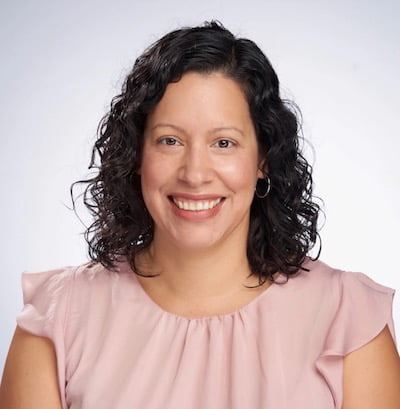PHOENIX – MARCH 16, 2022 – The U.S. Court of Appeals for the Ninth Circuit handed down a historic ruling confirming that the federal government can be held accountable for its failure to provide general education to Native American students. The court held that, under the Administrative Procedure Act, students at Havasupai Elementary School can compel the federal Bureau of Indian Education (BIE) to follow its own regulations and provide general educational services. The court also held that students may seek the remedy of compensatory education to make up for educational services that should have been provided, a move that is likely to have profound reverberations in primary and secondary education nationally.
“The Ninth Circuit Court of Appeals decision makes plain that the Bureau of Indian Education is responsible for fulfilling the federal government’s promise to provide education to the students in Havasupai. Thankfully, the students who have been harmed by the Bureau of Indian Education’s broken promises now have a path to hold the federal government accountable for its failures and to finally get back the education that should have been provided to them,” said Tara Ford, Senior Counsel, Opportunity Under Law at Public Counsel.
Frank C., grandfather of student plaintiff Stephen C. said, “Stephen C. and I have been waiting for this day for a long time. Education is critical in every community and our Havasupai children are no different. I have always wanted what every parent wants for their kids – a school system that educates them properly and prepares them for a bright future. Today’s decision allows us to pursue his education”.
The case was brought five years ago by students at Havasupai Elementary School (HES), which is located at the bottom of the Grand Canyon. The school has consistently failed to meet minimum regulatory requirements. For example, the BIE has failed to ensure that the school has staff to teach basic academic subjects like science and physical education. Student are not provided with adequate instruction time or materials to meet the standards for their grade. The pandemic exacerbated the problems that already existed in the school: almost no in-person instruction has been provided for nearly two years and even when remote instruction was provided, it was extremely limited and many students lack digital access. Though some instruction has recently begun in person, all 6-8th graders will continue to receive very limited hours of in-person instruction.
“This decision means so much to me,” said student plaintiff Durell P. “I was 10 years old when I started my fight for my education at the Havasupai Elementary School. Now I am 18, and while in many ways it’s too late for me to get back what I lost, it’s not too late for my little brother and sister and all the other kids who have to go to that school. Now, they can get the educations they are entitled to and deserve. I’m glad this Court finally heard me.”
This decision is the product of decades of commitment from the Havasupai community to hold the federal government accountable for educating its children. Vice Chairman of the Havasupai Tribal CouncilEdmund Tilousi said, “Year after year, I stand with my community as a tribal leader and advocate for our children’s education to ask the BIE to do what it always promises to do, but never does, educate our children. We supported the families who bravely brought this lawsuit five years ago and we support them now. We will never stop holding the federal government accountable for its promise to educate our children, our future leaders. Our children are sacred and our most important resource.”
“The Havasupai community is resilient and steadfast in its commitment to its children as evidenced by its decades-long fight to obtain education from the Bureau of Indian Education. Today, the community’s courage and bravery to hold the federal government has resulted in this historic decision safeguarding the rights of Havasupai students to receive a quality general elementary education,” said Alexis M. DeLaCruz, Attorney at the Native American Disability Law Center, also an organizational plaintiff in the lawsuit.
In 2020, plaintiffs reached a partial settlement with the Bureau of Indian Education that provided relief to Havasupai students with disabilities. This landmark decision now sends plaintiffs’ remaining claims—demanding that the federal government provide the general education required by law—back to the district court for additional legal proceedings.
“We are so grateful the Ninth Circuit recognized that Plaintiffs’ APA claim can and should proceed and we are today one step closer to vindicating the students of HES’ right to a quality general education in line with that afforded to all public-school students in the United States. We are committed to pressing on to defend that right,” said Emily Curran-Huberty, partner at Munger, Tolles & Olson LLP
Read the decision here.
***
ADDITIONAL STATEMENTS
Stuart LT. Chavez, Havasupai Tribal Council Member:
“I am a product of the BIE system. When I attended the Havasupai Elementary School, I felt like I was required to teach myself, there was many days where the teacher’s assistant taught majority of the students. These teacher’s assistants did not have a degree, and were hired to teach our students, they were individuals who assisted from within the community. Many days were filled with repetitive work packets that could be completed in minutes as they were below the current grade level I was in.
And now, during the COVID-19 pandemic, the parents and grandparents of the Havasupai Community are the ones having to teach the children because BIE is not there. The children lack the inherited right to build relationships and inspire their learning and their right to basic education. These children are being left behind. I was left behind. It is not the families’ responsibility to teach their children, it is BIE’s responsibility! It has not happened and is not happening; many have pleaded with the BIE System to do their jobs; my own mother may have turned blue in the face like many elders here to ensure that we all get proper education.
Comprehensive learning needs to be a priority. We are sending our students to high school with 4th grade educations – they struggle in high school to read, write, test and stay afloat. It’s stressful for them because they weren’t prepared to succeed in high school. Even for me, I had to get tutors, I had to work very, very hard to keep my grades up, I didn’t want to fail, my overall goal was to succeed. I fought to ensure that I learned. The desire to learn and the dedication to keep a successful grade is not being taught by the BIE, it’s not being taught at HES. It’s very sad. It’s just this domino effect that is spiraling into nothing.”






